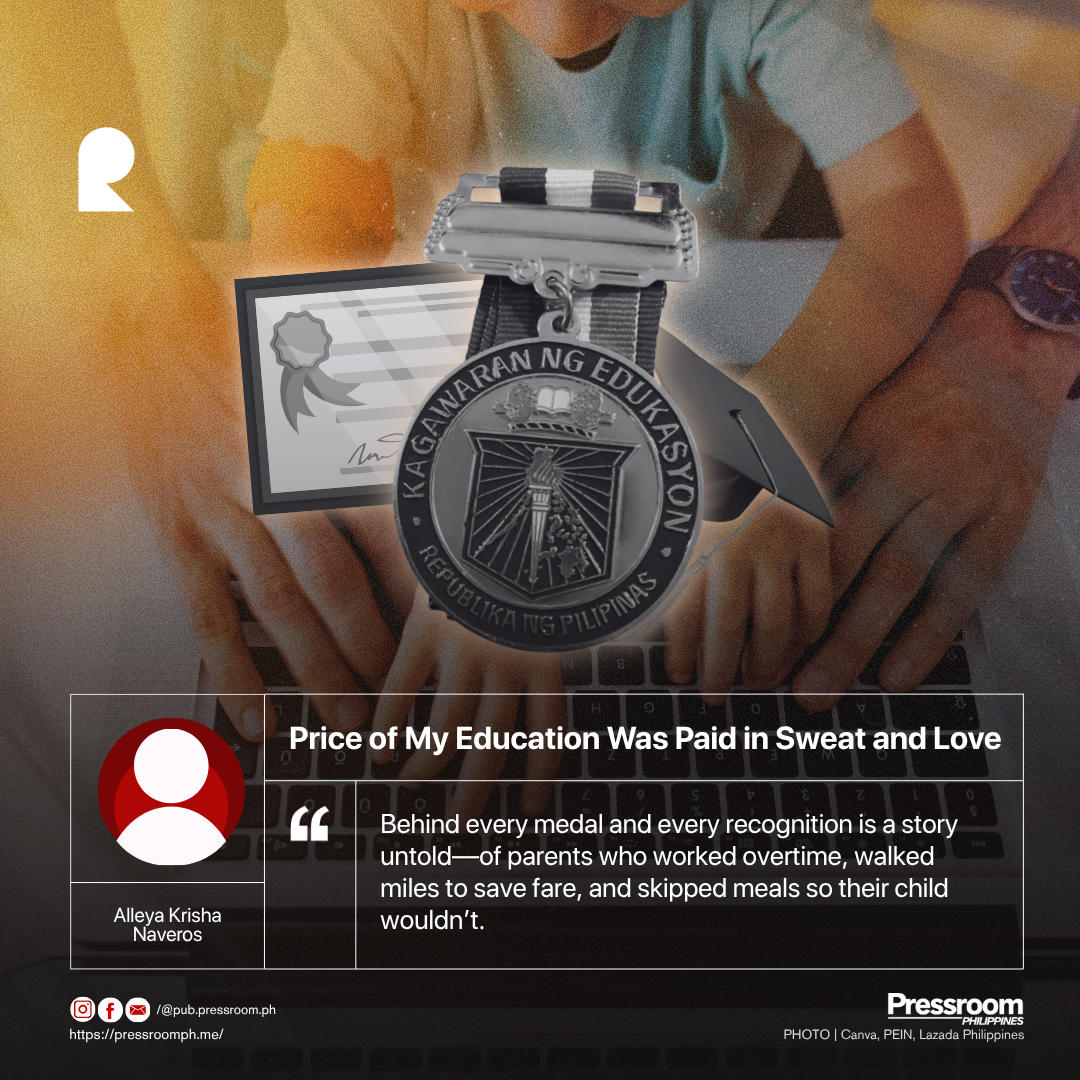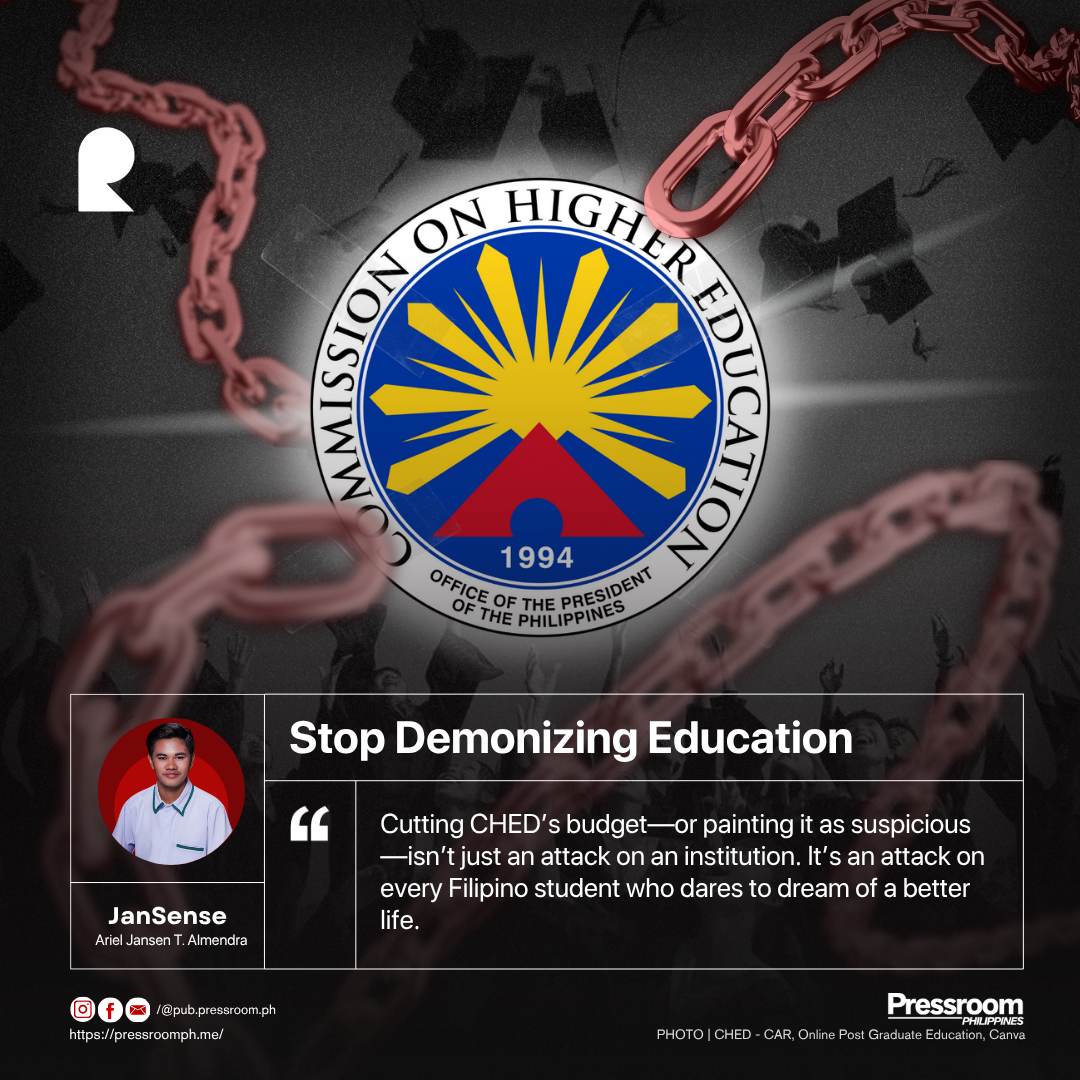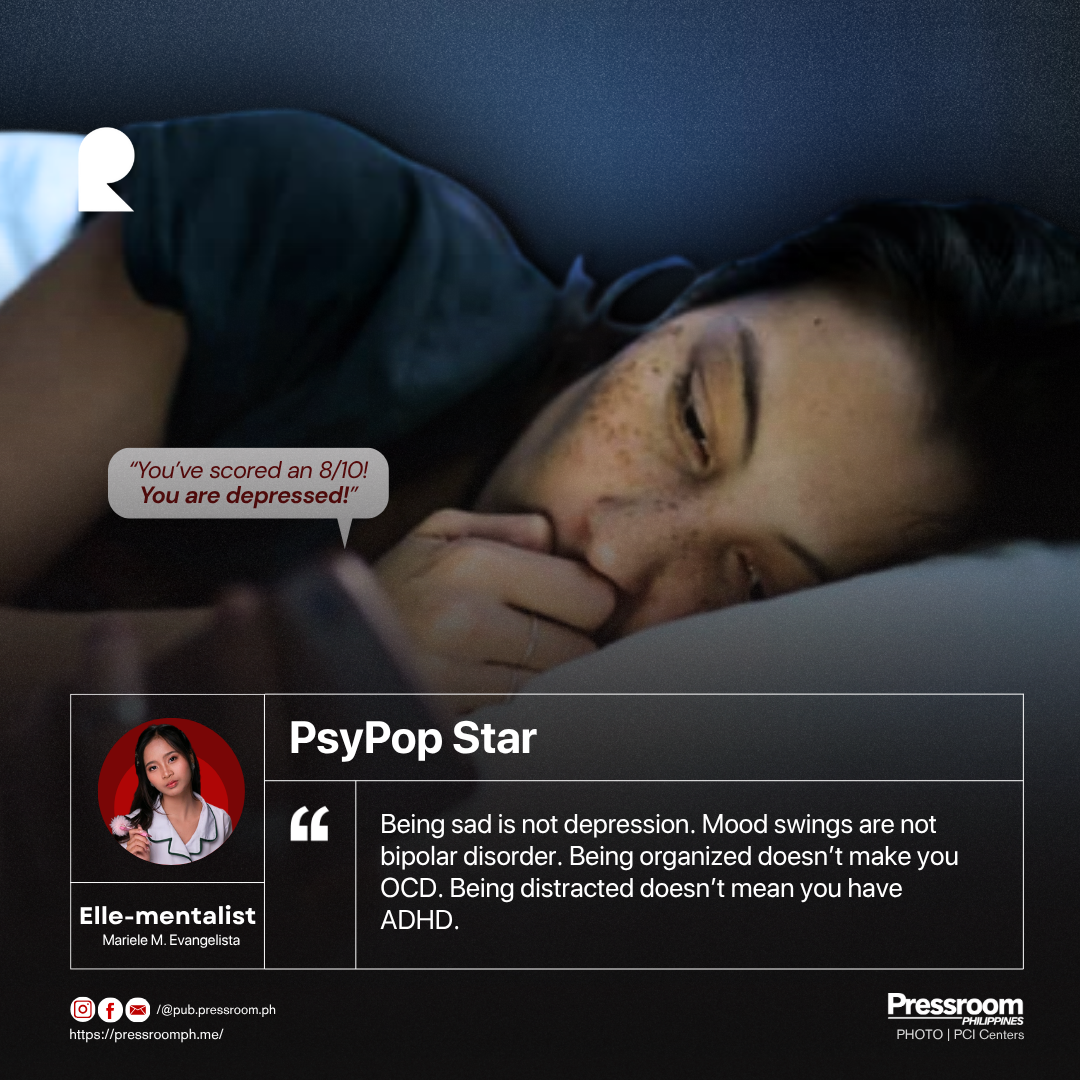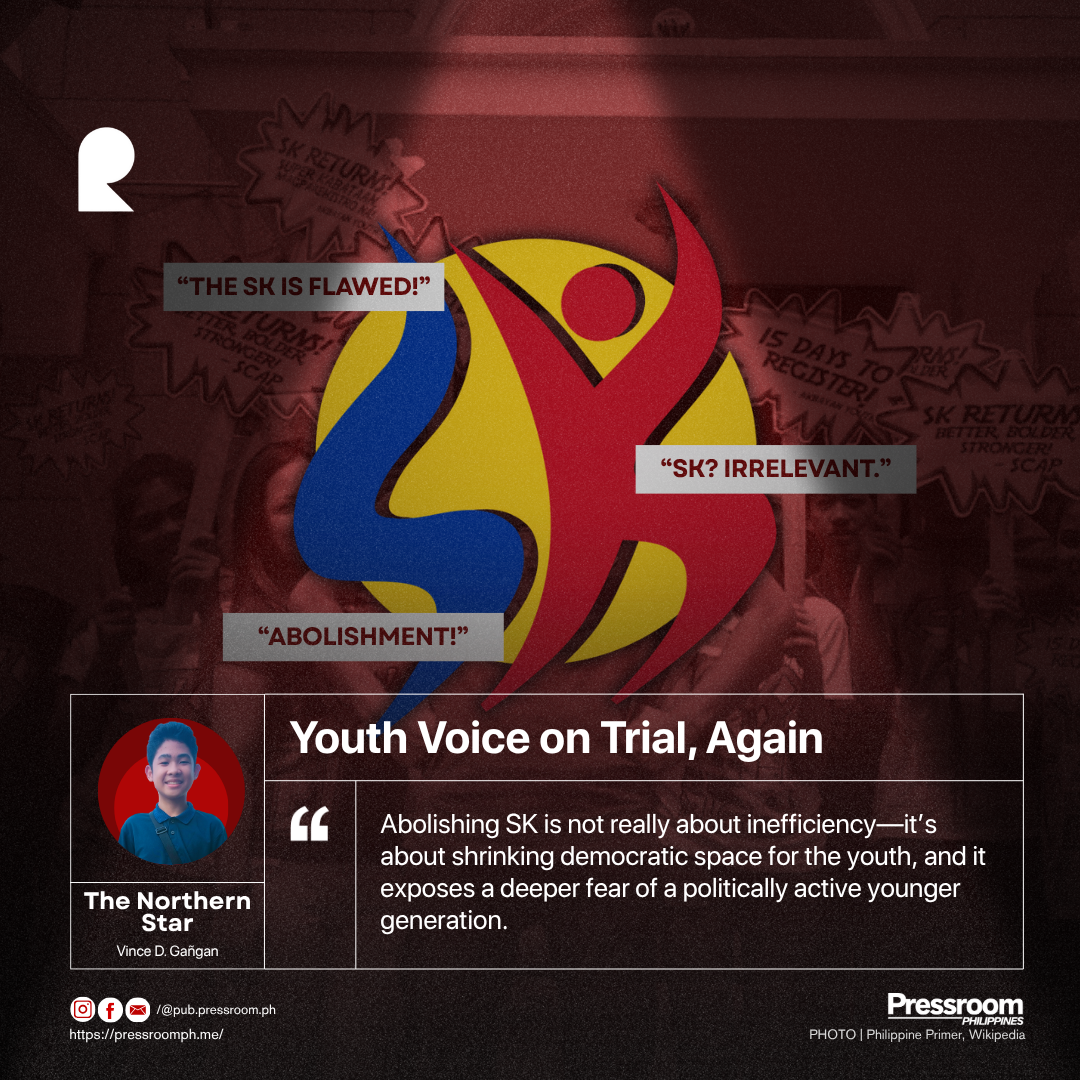| 𝘃𝗶𝗮 𝗝𝗮𝗶𝗺𝗲 𝗖. 𝗠𝗮𝗿𝗶𝗮𝗻𝗼, 𝗣𝗿𝗲𝘀𝘀𝗿𝗼𝗼𝗺 𝗣𝗛
During a recent Independence Day gathering in Malaysia, Senator Robin Padilla boldly declared his support for a 2028 presidential tandem between Vice President Sara Duterte and Senator Imee Marcos. He even volunteered to be their campaign manager, casting aside any pretense of neutrality or issue-based politics. In a moment intended to promote unity and reflection on Philippine freedom, Padilla chose instead to push a recycled alliance rooted in political legacy, not public service.
The proposed Duterte-Marcos tandem is not merely a political alignment — it is a continuation of dynastic rule, historical revisionism, and personality-driven governance. For Filipino youth, this should raise alarms. We cannot allow politics to devolve into a dynastic spectacle. We must actively resist efforts to normalize the concentration of power within the hands of families who have profited from authoritarian rule, human rights violations, and disinformation. We deserve leaders, not legacies.
Senator Imee Marcos, sister of the current president and daughter of the late dictator Ferdinand Marcos Sr., has consistently evaded responsibility for her family’s abuses during martial law. Human rights watchdogs such as Amnesty International and the Human Rights Victims’ Claims Board documented over 11,000 cases of human rights violations during her father’s regime.
The Philippine Supreme Court has affirmed the existence of billions in ill-gotten wealth amassed by the Marcos family — wealth that remains not fully recovered. Despite this, Senator Marcos has built her political career on historical distortion, aided by a vast machinery of social media propaganda and disinformation campaigns, as documented by Rappler and academic institutions like UP’s Department of Communication Research.
Vice President Sara Duterte, meanwhile, has followed in her father’s authoritarian footsteps. She openly supported the Anti-Terror Law, a measure that rights groups fear suppresses legitimate dissent. As Secretary of Education, she has backed red-tagging and the censorship of allegedly “anti-government” educational materials. Her silence on the extrajudicial killings and abuses during the Duterte drug war — where over 6,000 deaths were officially recorded, with human rights organizations estimating as many as 27,000 — speaks volumes about her governance priorities.
Then there’s Senator Robin Padilla, who frames himself as a patriotic outsider while participating in the very power plays that erode democratic integrity. His claim that we should “set aside politics” while campaigning for a political duo is not just contradictory — it’s dangerous. It reduces politics to petty bickering instead of the arena where critical decisions about health, education, justice, and national development are made.
Supporters may say the duo has experience, national presence, and electoral appeal. But we must ask: experience in what? Duterte and Marcos are experienced in winning elections, yes — but at what cost? Popularity and visibility do not equate to governance rooted in public service or moral clarity.
Some might argue that the people still support them — perhaps true. But popularity is often manufactured by propaganda, not meaningful policy. As the Marcos and Duterte camps have demonstrated, control over digital platforms and massive campaign funds can reshape memory, whitewash crimes, and construct appealing falsehoods.
Others might insist that judgment should be reserved until platforms are announced. But the time to demand accountability and clarity is before candidacies become official, before personalities dominate the airwaves and cloud our collective judgment.
If 2028 is to be a turning point, it must begin with the youth. And we have already shown that we can rise. In the May 2025 midterm elections, the Commission on Elections reported the highest voter turnout in Philippine midterm history: 81.65%, or 55.87 million out of 68.43 million registered voters. COMELEC Chair George Erwin Garcia credited this unprecedented turnout largely to the massive participation of young voters.
This was not a coincidence — it was a movement. The youth campaigned for progressive, oppositional candidates like Kiko Pangilinan, Bam Aquino, Heidi Mendoza, and many local leaders who stood for clean governance and democratic values. It wasn’t technology that drove this; Garcia emphasized it was the rise in civic consciousness — the belief that “basta mabigyan mo lang ng tamang prinsipyo’t isyu ang mga kababayan natin, they will go to the polls.”
The youth rejected silence. We rejected complicity. And we voted for issue-based, values-centered leadership. That same energy must carry into 2028.
We must begin now. Register. Organize. Educate. Resist. Ask hard questions about platforms. Demand debates. Use social media to share verified facts, not blind loyalty. Support candidates who come from communities, not dynasties — those with integrity, not impunity.
We must also continue advocating for political reforms: an anti-dynasty law, stronger regulations on campaign spending and disinformation, and better civic education. This isn’t just about one election — it’s about fixing a political culture that rewards name recall over national responsibility.
A Duterte-Marcos tandem is not a step forward — it’s a return to a dangerous past. But if the youth remains vigilant, organized, and informed, no dynasty, no disinformation, and no declaration can control our collective future.
We’ve already made history in 2025. Let’s make a better one in 2028.
Because the future is not inherited. It’s earned. And we, the youth, will fight for the one we deserve.






